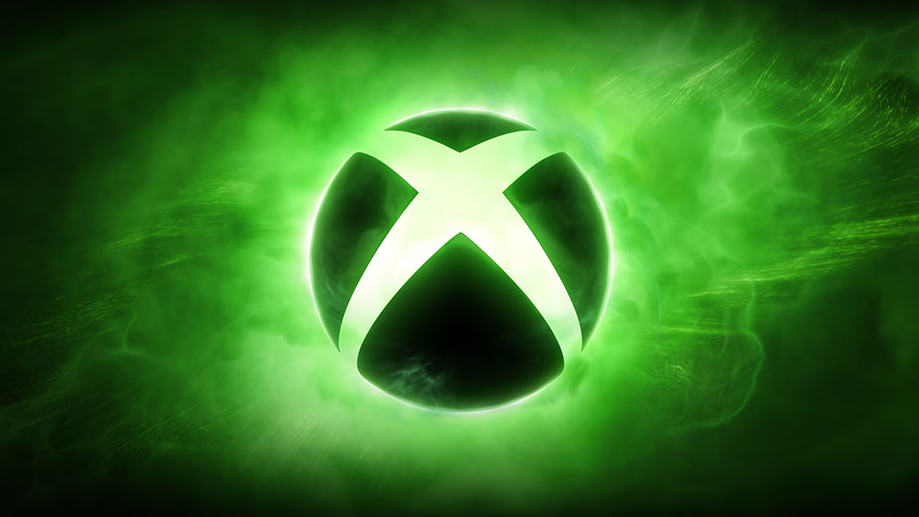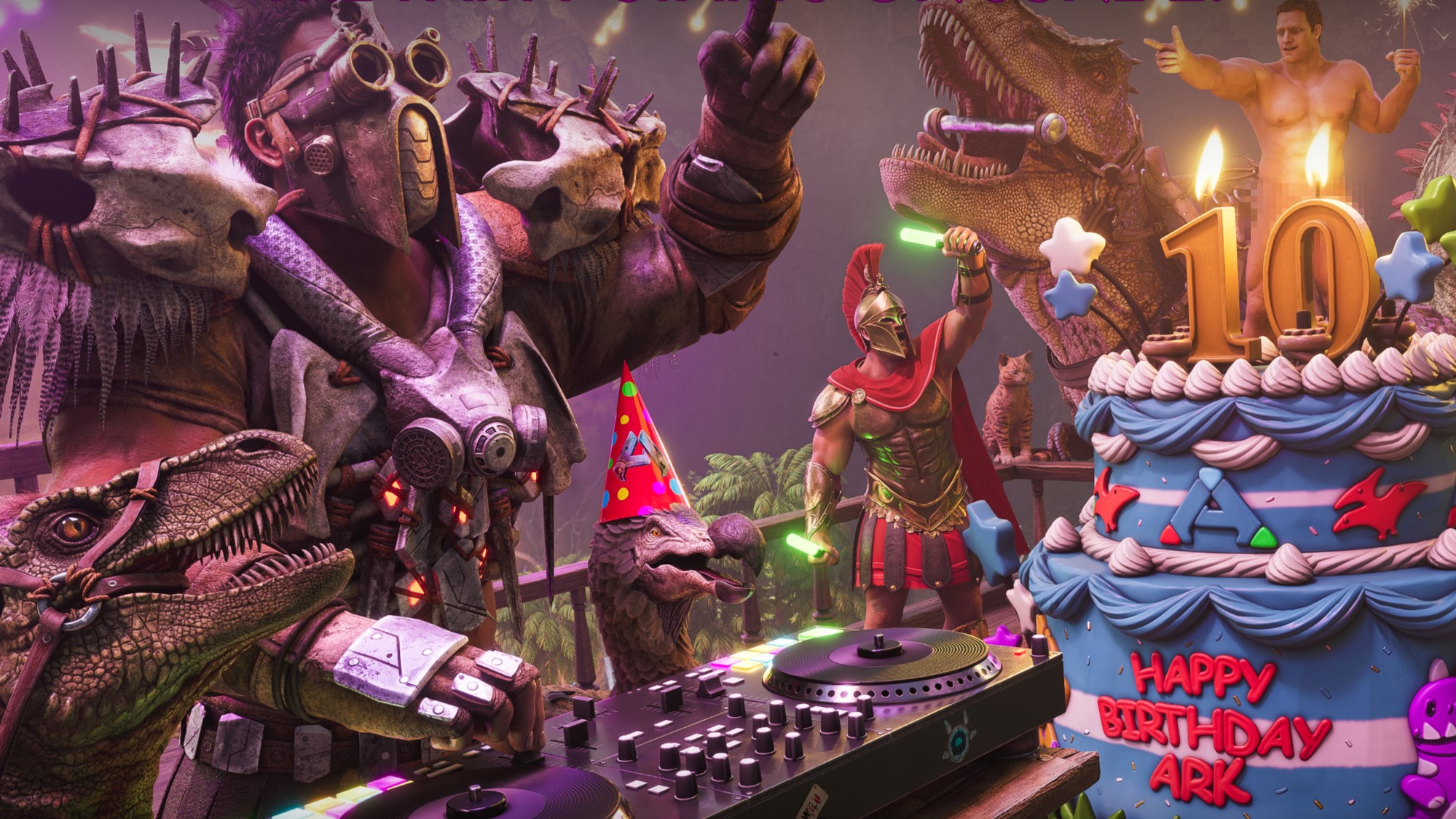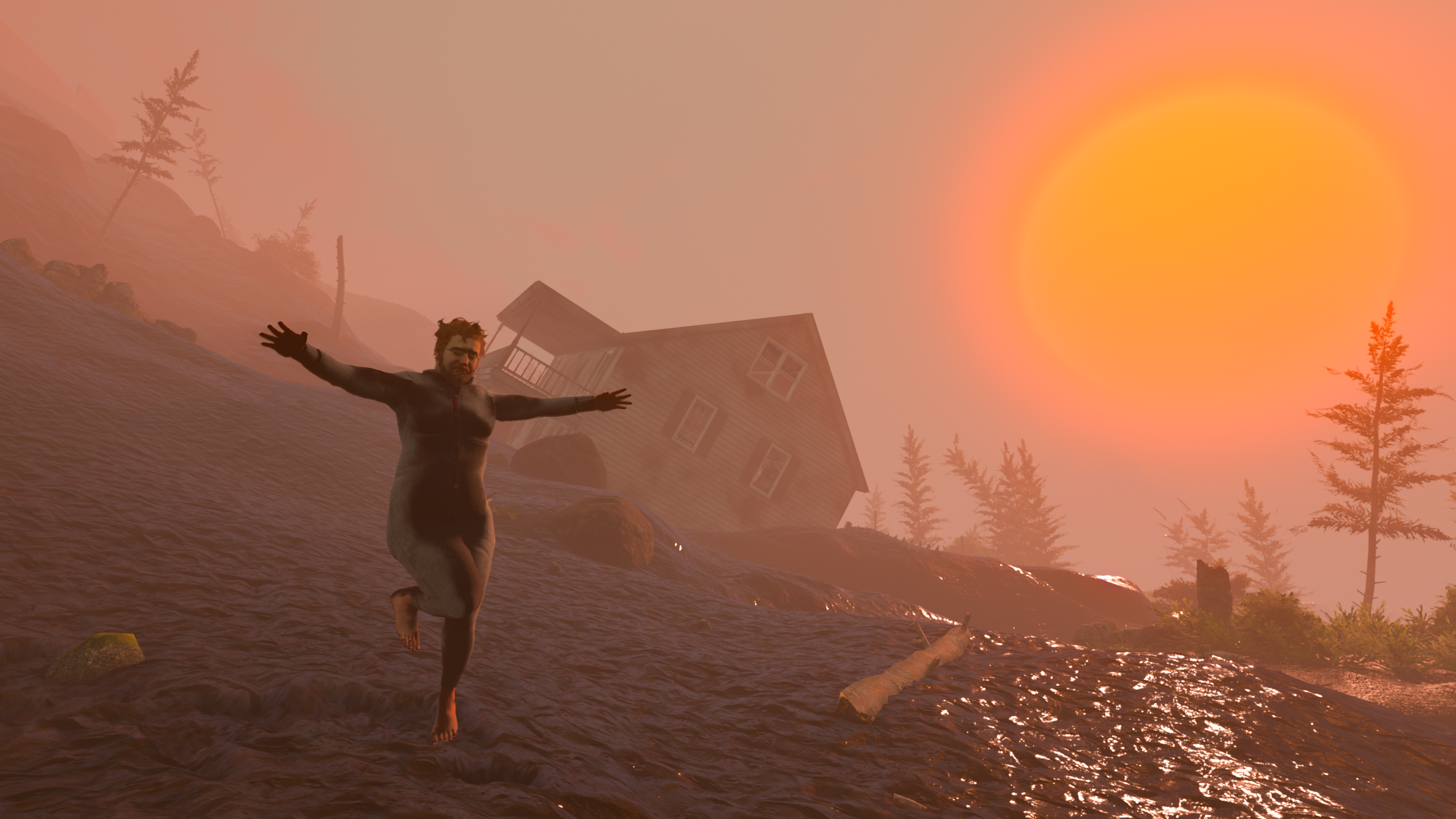
Star Trek and a Telltale-style adventure game seems like a match made in heaven. The two just fit; Star Trek’s best and most beloved stories are about dialogue. Not just two characters talking to each other, but about how people relate to one another and the world around them. It’s about the choices we make when faced with tough decisions, what we could be if we learned from our past mistakes, and the strength gained by uniting diverse peoples and cultures. All of that can be hard to do in a video game, which are typically too busy firing phasers and torpedoes to get more than a few words in edgewise. Star Trek: Resurgence’s conversation-heavy approach doesn’t always work, but it never loses sight of what makes Star Trek, well… Star Trek. And when the developers at Dramatic Labs lock onto that signal, it nails the series’ appeal while providing an engaging story full of memorable characters.
Resurgence follows the crew of the USS Resolute, picking up a few years after the end of Star Trek: Nemesis (the final Next Generation films). The story puts you in control of two instantly likable characters: Jara Rydeck, a humble yet accomplished Academy graduate who has been brought in to be the ship’s new first officer; and Carter Diaz, a charming and funny, adventure-hungry engineer who used his great talent to skip the Academy and enlists to get and out see the galaxy.
Dramatic Labs establishes several conflicts immediately. The crew views Jara as an outsider who walked into a job she hasn’t earned. The Resolute’s commanding officer, Captain Solano, is desperate to salvage what’s left of his legacy after an accident and expects Jara to help him do it, even if it means breaking a few rules here and there. Carter, on the other hand, is part of an overworked, understaffed engineering team that’s responsible for getting the Resolute up and running while managing a Vulcan boss who seems impossible to please, his friendships with other members of the crew, and his own personal ambitions.
It might sound like a lot right off the bat, but the decision to frontload so much of the plot pays off.
Then there’s the ship itself. The Resolute is a science vessel, and its first mission back is a doozy: negotiating a settlement between the Alydians and the Hotari, two alien races feuding over who owns valuable dilithium mines. It might sound like a lot right off the bat, but the decision to frontload so much of the plot pays off. I was immediately invested in both Jara and Carter’s lives and the pressures they were under to balance so many things while staying true to the mission. It also sets up some great moments later on in the story, where several of these issues rear their heads at the same time, but it only works because Dramatic Labs has spent so much time establishing who our characters are, what they want, and the problems – both personal and professional – they’re facing.
And that’s just the opening hour – things get much, much more complicated over the next 11 or so. Dramatic Labs is spinning a lot of plates here, but it manages to keep almost all of them from falling over and shattering. You won’t need to know much about Star Trek to follow along, though you’ll obviously appreciate certain things and characters more if you know the difference between, for example, Centaur and Miranda class starships.
You won’t need to know much about Star Trek to follow along.
The perspective effectively bounces between Jara and Carter depending on the situation. Sometimes, that means giving orders from the bridge or leading an away team. Other times it means rerouting power to a critical system or taking a spacewalk to repair the Resolute. It gives you a better idea of the stakes for everyone aboard – problems apply to more than the folks on the bridge, who knew! – and makes scenarios more exciting. Jara and Carter rarely directly interact with one another but both of them play important roles in the story, and Dramatic Labs does a good job showing how the decisions made by one of them can impact the other. In one early scene, Carter is out on the ship’s hull repairing a critical system, while Jara is on the bridge. How well you do as Carter affects what happens to the ship, but the decisions you make as Jara affect Carter if something goes wrong.
You’ll have to make these choices quickly, too, because you’re on a timer. Sometimes it’s fast and sometimes it’s slow, but you have to respond – or not, but choosing not to decide is a choice in and of itself.I never felt rushed during big moments, but I knew I had to be decisive – and so did the characters I was controlling. The timer was fast enough to make me think on my feet but not so overwhelming that I felt paralyzed by indecision. Better still, I felt I understood Jara and Carter more because I had just as much time to work through the issues as they did.
And the decisions you make don’t just affect the ship or the safety of the other characters – they change how they see your characters, too. If Jara chooses to defy Solano’s orders, that has repercussions in their relationship later, and will change how he approaches her. If you alienate a member of the bridge crew by being snappy or repeatedly ignoring their suggestions, you probably won’t be able to ask them for help later in critical moments. Carter’s interpersonal relationships aren’t as politically fraught as Jara’s, but the way he treats his friends – and superior officers – and how he reacts under pressure can quite literally mean the difference between life and death. These interactions matter, and while very few of them are things so relationship-defining that you can’t fix them later, they can play a big role at later moments in the story.
Piotr Michael absolutely nails every facet of Nimoy’s famously distinct voice and intonation.
Much of the team at Dramatic Labs used to work at Telltale, and that shows in the quality of the writing. All of Resurgence’s characters feel like real people. Each has hopes, dreams, trauma, and pain, and what they do is defined by what they believe, what’s happened to them, and the choices you make. All of that comes across, whether you’re watching Carter joke with his best friend, palling around with the Hotari ambassador as Jara, or just chatting with Ambassador Spock.
Speaking of whom, Piotr Michael takes over the role from the late Leonard Nimoy, and he absolutely nails every facet of Nimoy’s famously distinct voice and intonation. There are a couple of other characters I don’t want to spoil, but the entire cast is fantastic – though Josh Keaton (Carter) and Krizia Bajos (Jara) are standouts.
Resurgence looks good, too. It’s not God of War or anything, but character models – especially their faces – are beautifully animated and full of personality, and many of the late-game environments are stunning. There’s a little jank here in things like the walk animations, but I was often so stunned by how well the characters emoted that I almost forgot about it. And no matter who it was, I enjoyed spending time with these characters and watching them grow as people.
Resurgence does a great job of making its scenarios feel like there’s no right answer.
One of the great strengths of Resurgence is that it does a great job of making its scenarios feel like there’s no right answer, or that you’re sometimes stuck with the best of bad options. You can see how your decisions change your relationships in the pause menu, but there’s no morality meter or “Good job, you made the right choice here!” signposting to suggest a correct course of action. Other characters will tell you what they think, but that’s all.
And these decisions can get complicated – quickly. When the ship is in danger and the bridge crew offer two options, who do you side with? The senior officer with more experience or the junior officer who sounds like her idea might just be crazy enough to work? If crew members need rescuing but doing so might endanger the ship, do you risk everything for them or let them go it alone? Do you set your phaser to stun or to kill? Who do you trust?
Watching these decisions play out can be both thrilling and devastating, and my calls often didn’t play out how I thought they would. There were several times where I was certain I was making a bad move or taking too big a risk, only to realize everything would go my way. And there were others when the choices I thought were solid blew up spectacularly in my face – but looking back on them, almost everything feels earned. The things that happened during my playthrough feel like they happened because I made choices, not because the plot demanded it or because the invisible hand of the writers guided me there.
The lack of meaningful consequences made certain decisions feel like filler in hindsight.
That said, I do wish the consequences of certain choices had more effect on the story. Sometimes, you’ll make what feels like an important decision only to realize later that it didn’t matter much. That’s inevitable in a game like Resurgence – the story has to continue no matter what you do – but it never feels good when it happens. In one extreme example I was sent to rescue a group of people by beaming them away from impending disaster. Ultimately, I had to choose between gravely injuring one of my crew members and potentially sacrificing that group. I chose to save the group. The decision felt awful (in a good way) – there was no good choice – but I did what I thought was right and what the character I was playing would do. Later on, the group’s leader thanked me for my choice – and then didn’t really appear again, even when it would have made sense for them to do so. This happened more than once. I don’t regret the choices I made; they were set up extremely well and emotionally effective when I made them. But the lack of meaningful consequences made them feel like filler in hindsight.
Of course, all of those dialogue options and moral dilemmas are broken up by Resurgence’s moment-to-moment action, which is respectable. There’s a lot of variety here: you’ll fly shuttles, fire phasers, command the Resolute from the bridge, solve engineering puzzles, scan things with your tricorder, and sneak around hostile environments, and nearly all of it is engaging and feels like what we should be doing in a Star Trek game. I particularly enjoyed the flying and shooting segments because they required me to make quick decisions. Best of all, these segments are never one-offs, so you’re building skills that can be used in more difficult, stressful scenarios later on.
The only annoyance among them is the tricorder segments, which ask you to scan objects to solve puzzles. What you need to scan isn’t always obvious, and there were times I spent a few minutes wandering around the same room looking for the last piece of information I needed. Resurgence tries to help you out by having the tricorder beep when you’re near something that can be scanned, but it doesn’t distinguish between something that can be scanned and something you already have scanned. In a small environment with a lot of scannable objects this can mean the tricorder is constantly beeping, which isn’t really helpful. Most times, the tricorder segments work well enough, but when you get stuck it can become frustrating.
The PC version also has some technical issues. There are no graphics settings aside from resolution, and it runs locked at 30 frames per second (though it dipped significantly below that when a lot was happening on screen), but Resurgence looks good enough that I doubt many people will notice. My biggest issue lies with the subtitles, which often disappear entirely or don’t match the spoken dialogue in ways that either reveal information that changed my moral calculus or were just jarring. There’s a difference between telling me a lot of people are in danger and the decision I am about to make will impact the lives of more than 100 people. And there’s a tonal distinction in saying “give ‘em hell!” instead of something a little more milquetoast.
I also found myself wishing for a chapter-select option once I finished everything so I could easily go back and try out different choices at specific instances. Unfortunately, this doesn’t exist in Resurgence, but it does track your choices via a website (which wasn’t available pre-release).






